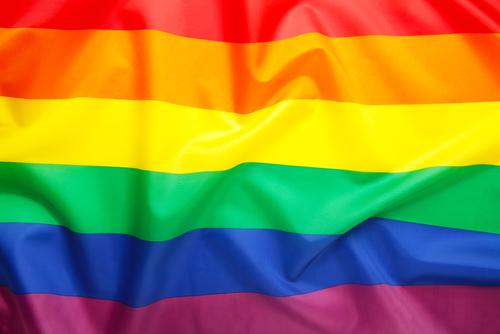LGBTQ is an acronym that stands for lesbian, gay, bisexual, transgender, and queer or questioning. The acceptance of individuals that identify as LGBTQ has risen steadily around the world since 1980. The 2018 Survey of American Acceptance and Attitudes Toward LGBTQ Americans found that 79% of Americans support equal legal rights for LGBTQ people, which is approximately a 28% increase from the 51% findings reported in 2006. Nevertheless, members of the LGBTQ community continue to be stigmatized and remain at increased risk for a developing mental illness. Individuals that identify as LGBTQ may seek counseling for a variety of reasons akin to those that are not members of the LGBTQ community (e.g., anxiety, grief, depression, PTSD, etc.). Additionally, LGBTQ individuals often struggle with and seek professional support for gender dysphoria and/ or sexual identity issues. Learning additional coping mechanisms, conflict resolution tactics, and effective means for integrating experiences can behoove any person. Therapy and treatment approaches that are free of judgment and inclusive of all are fundamental in LGBTQ-oriented therapy practices.
Therapy
Every individual is different and not all types of therapy will resonate with each person. Working with mental health clinicians that have received training and are familiar with the needs of LGBTQ members are better equipped to provide ample, tailored support. There are a variety of options available to people that identify at part of the LGBTQ community in Los Angeles, California. It is common practice for clinicians to integrate LGBT affirmative therapy into any treatment plan when working with an individual that identifies as a member of the LGBTQ community. LGBT affirmative therapy is a form of psychotherapy used to “validate and advocate for the needs of sexual and gender minority clients.” It can help empower an individual learn to effectively navigate the unique challenges associated with being a member of the LGBTQ community.
Due to the vast number of clinical providers in Los Angeles, beginning the search for therapy can seem overwhelming. There are, however, a variety of online resources that can help you locate a mental health provider in California. For example, Psychology Today has compiled a list of qualified mental health professionals with experience in providing services to members of the LGBTQ community in Los Angeles. It is important to note that all mental health providers are different and will offer support from a somewhat unique therapeutic perspective. Not all therapists will resonate with every person. Simply because a therapist has extensive experience working with LGBTQ members does not mean that particular mental health provider will inevitably be a perfect match. They only way for therapy to yield successful results is for the individual to feel comfortable with the mental health professional selected.
Disclaimer:
The information above is provided for the use of informational purposes only. The above content is not to be substituted for professional advice, diagnosis, or treatment, as in no way is it intended as an attempt to practice medicine, give specific medical advice, including, without limitation, advice concerning the topic of mental health. As such, please do not use any material provided above as a means to disregard professional advice or delay seeking treatment.

